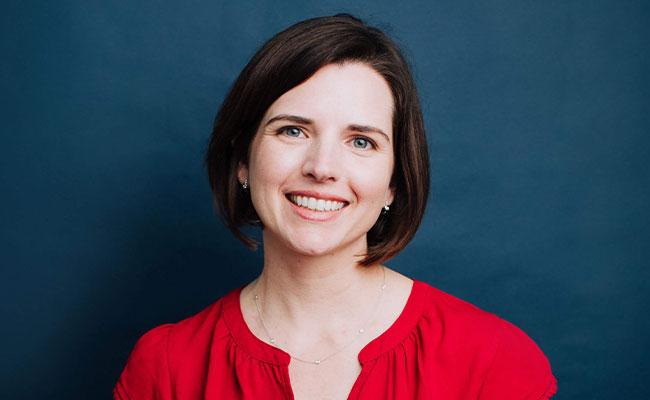#TtInspires: Brenna Minor, Disaster Recovery and CDBG Program Manager
Implementing federally funded disaster recovery projects to help build back resilient communities

Brenna Minor is a program manager with Tetra Tech’s Disaster Recovery group, specializing in implementing federally funded disaster recovery projects. Brenna currently works with the City of Philadelphia, Pennsylvania, on COVID-19 recovery programs through the Federal Emergency Management Agency (FEMA) and other Coronavirus Aid, Relief, and Economic Security (CARES) Act funds. She also is developing the Community Development Block Grant (CDBG)-Mitigation Action Plan for the U.S. Virgin Islands Housing Finance Authority.
Brenna holds a Bachelor of Arts in Political Science from Boston University and a Master of Arts in Urban and Environmental Policy and Planning from Tufts University.
What inspired you to get into that field of work?
I love the big picture and studying how people function within systems and government structures. Courses that I took in college on political science, architecture, and cultural anthropology led me to seek a graduate degree that would allow me to combine these fields. Learning about both the spatial and social aspects of planning and policy turned out to be very fitting with my work in disaster recovery. Building communities back after a disaster and understanding how to do that within the context of federal policy and programs is central to my work.
Tell us about some of the projects you’ve worked on at Tetra tech that have been the most inspirational to you.
I joined Tetra Tech in June 2020 after almost 13 years at a small firm working with CDBG clients exclusively in Texas. I knew Neal Rackleff who joined Tetra Tech in 2019 through past CDBG work together and felt like it was time to expand my program knowledge and work with clients on new programs and in new places. Since joining Tetra Tech, I’ve already seen the impact that our work has on our clients and their communities. In the U.S. Virgin Islands, it has been a pleasure to help draft their first CDBG-Mitigation Action Plan. The plan will give the territory an opportunity to implement projects focused on building resilience to future disaster events. It is inspiring to work with such a tight-knit and caring community. They are truly committed to improving and sustaining their economy and the natural environment of the islands.
While working with the City of Philadelphia, quickly learning federal rules and regulations associated with the CARES Act and assisting the City in making eligibility decisions, has been crucial to helping the City spend $276 million in COVID-19 Relief Funds before the end of 2020. No disaster or pandemic in recent history has lasted for so long. It has been important to the City to make efficient and intelligent use of their funding when the costs associated with the pandemic far exceed available government assistance. Working with such dedicated civil servants, as I have in Philadelphia, is an inspiration.
What do you do outside of your work that you think makes a difference for today’s environment?
I have solar panels on my house and our family has an electric car, but we know those are just a drop in the proverbial bucket. I think it’s important to instill a love for and appreciation of nature in my children by taking time to explore outside and support our local, state, and national parks as often as possible.
Are we making progress in creating a better world for ourselves?
There is a long road ahead, but steps have been made in the right direction. A great example is the paradigm shift occurring in disaster recovery. Instead of solely focusing on building things back after they’re damaged in a disaster event, we are now putting resources toward building resilient communities that can bounce back both physically and economically from future disaster events.

